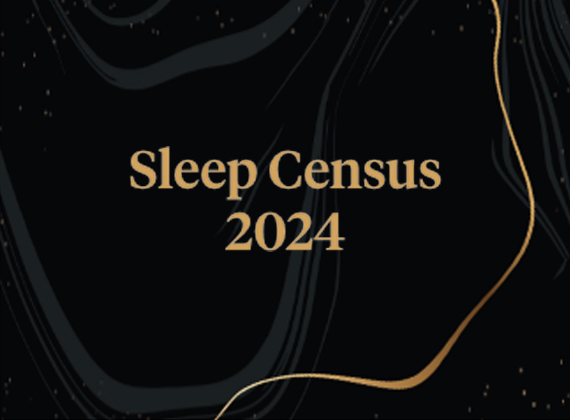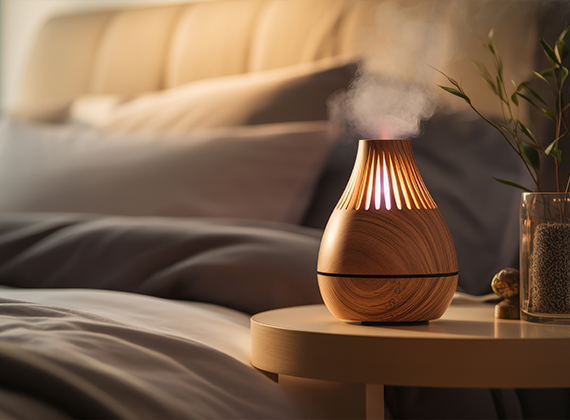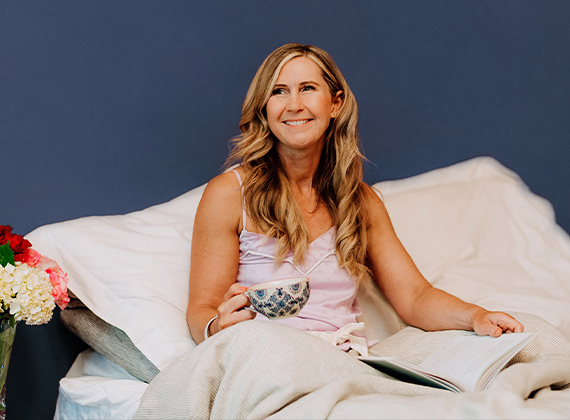With each New Year begins, many of us like to set goals to improve our health, well-being, and productivity. Yet, one key aspect of a healthier, more balanced life often gets overlooked: quality sleep.
Quality sleep
While resolutions frequently focus on fitness, stress management, or career advancement, prioritising sleep can be the key to unlocking success in all these areas. Restful sleep is essential for boosting mood, enhancing cognitive function, and allowing the body to recover and recharge.
We have prepared our top tips for helping to reset your health and wellness, so you can truly thrive in 2025.
Goodnight kiwi! How is Aotearoa sleeping?
Our latest ‘Sealy Sleep Census’ results indicate that 90% of Kiwis believe our personal lives would benefit from better sleep, showing the importance of sleep in our everyday lives; also revealing the trends below:
How long are we sleeping?
While 55% of New Zealanders report getting the recommended 7-8 hours of sleep, nearly 40% are falling short, with less than 6 hours per night; this can have significant impact on our physical and mental health
Bad habits before bed
- 76% of Kiwis keep their mobile devices within arm’s reach while sleeping, and many report screen use just before bed – this habit is strongly linked to waking up feeling less rested
- New Zealanders are the world’s highest consumers of caffeine, with 93% drinking at least one caffeinated beverage daily
- 1 in 9 drink caffeine within an hour of bedtime, negatively affecting sleep quality
Feeling unrefreshed
- 60% of Kiwis wake up feeling unrested at least five days a week
- 1 in 10 admit to never waking up refreshed, a number that rises to 1 in 4 for those working rotating or changing shifts
- Women, in particular, report higher levels of anxiety and depression after poor sleep, though both genders acknowledge its emotional toll.
The science of sleep and mental health
Sleep is the cornerstone of mental wellness. During deep sleep, our brains process emotions and memories, helping us wake up refreshed and emotionally balanced. Lack of sleep disrupts this process, leading to irritability, reduced emotional resilience and difficulty managing stress.
During sleep, the body and brain repair themselves, strengthening the immune system, which has close ties to mental health – bolstering the stress response and recharging the systems that help regulate emotions, thoughts and focus.
Chronic sleep deprivation, on the other hand, can lead to heightened stress levels, poor decision-making, and an increased risk of mental health challenges.
Beyond mental well-being, quality sleep is key for overall health, acting as the foundation for both the mind and body to perform optimally. Not only does it help you process daily stresses, but also sets the stage for physical health. It boosts immunity, supports muscle recovery, and enhances energy levels – factors that help you stay healthy and active. Additionally, sleep plays an essential role in maintaining functions of mind and body, such as recovering from psychological stress and restoring physical energy.
Prioritising sleep by creating a calming bedtime routine, maintaining consistent sleep schedules, and optimising your sleeping environment, can help improve health and wellness outcomes, setting you up for the New Year.
Practical tips to improve your sleep in 2025
INVEST IN A HIGH-QUALITY MATTRESS
Our ‘Sealy NZ Sleep Census’ reveals that 16% of New Zealanders keep their mattresses for over 10 years, exceeding the recommended lifespan of 8-10 years. If you have had your mattress for longer than this, consider investing in a new, premium mattress, like our Sealy Posturepedic range, which will provide optimal support for your sleep comfort.
Try our Sealy Bed Selector tool to find the mattress that’s right for you.
ESTABLISH A CONSISTENT ROUTINE
Do you find yourself feeling more fatigued in the summer holidays? This is likely due to the inconsistency in the time you go to bed because of the extended days and social activities that linger into the evenings. Going to bed and waking up at the same time each day helps regulate your internal clock, ensuring more consistent and restorative sleep. In the lead-up to returning to work or school, aim to go to bed at your usual weekday time, to help reset your body clock and ease the transition back into routine.
LIMIT STIMULANTS BEFORE BEDTIME
93% of New Zealanders consume caffeine daily, with most having 2–3 units per day, making us the highest consumers globally, as reported in our recent research. Notably, 1 in 9 drink caffeine within an hour of bed, and over 50% have their last caffeine drink within 5 hours of sleep. To support better rest, avoid caffeine, heavy meals, and other stimulants, like screens, at least an hour before bed (ideally longer).
CREATE YOUR PERFECT SLEEP ENVIRONMENT
Transform your bedroom into a restful retreat by reducing clutter, minimising noise, and incorporating calming scents or soft lighting. Blackout curtains and white noise played in the background can also help.
AVOID DEVICES AND INCORPORATE RELAXATION TECHNIQUES BEFORE BED
Instead of keeping your phone on your bedside table, place it across the bedroom to reduce easy access and late-night distractions. If going device-free seems difficult, start with manageable actions, like reducing device usage close to bedtime, or engage in less stimulating activities, such as reading or meditative exercise. Additionally, practices like deep breathing, can signal to your brain that it’s time to rest.
Simply answer a few quick questions and we’ll recommend the best mattress for your sleep profile. We can also send you a customised report, which you can take into a local Sealy stockist so you can experience your recommended bed.
You may also like ...
Explore how you can achieve balance through sleep, exercise and nutrition.




